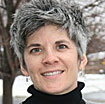Commentary on Psalm 150
Dare I suggest considering a sermon on something other than John 20 this Easter 2?
I recommend a worship service filled with unrestrained praise to the tune of Psalm 150. This is not altogether unrelated to John 20, for it mimics Thomas’ move from a restrained disciple toward a proclamation of unrestrained praise, “My Lord and My God.”
Psalm 150 provides guidance on praising the Lord in few words. In only six verses, we learn who, where, and how to praise, the motivation to praise, and who/what should do the praising. Since the majority of the Psalm focuses on how to praise the Lord, so will the following comments. But, first, a quick summary of the other guiding elements.
Yahweh is to be praised in his sanctuary (temple language) and in his mighty expanse (read: no limits). Why should Yahweh be praised? Because Yahweh is praise-able; Yahweh is worthy of our praise. Who should be praising Yahweh? You, me, and all that has life; all that breathes. Again, read: no limits. “All that breathes” brings us full circle to the actions of the one who is to be praised. Our identity is defined in terms of Yahweh’s identity as the one who breathes first. Without the “praisee,” there would be no “praisers.”
Now to the major question of the Psalm (assuming that being the focus of the majority of verses signifies “major”). How are we to praise the Lord? In short, the Psalm suggests “according to the Lord’s surpassing greatness.” The Psalm does not say we are to praise God according to God’s actions. Instead, we are to praise God according to God’s being. The next six verses flesh out how we are to understand the Lord’s surpassing greatness. Essentially, the Lord’s surpassing greatness is highly sensory and diverse; it is not to be missed in its aural, kinesthetic, and visual grandeur.
Aural
This Psalm comes off the page and meets the faithful right where it counts — the ear (“Faith comes through hearing”). Spend a little time imagining the cacophony (!) created when the following instruments are mixed: trumpets, lute, harp, tambourine, strings, pipe, clanging cymbals, loud clashing cymbals. This is no ordinary composition of sounds.
Aurally, the choice of instruments defies logic. The Lord’s surpassing greatness is difficult to miss and defies a certain organizational logic. This Psalm suggests we do the same to return praise. A number of composers through the ages have helped us do so: Bruckner, Britten, Rutter, Franck. More and more I am keenly aware of how the church’s musicians have been helpful commentators on the Psalms. Indeed, it is through music that we praise the Lord.
That we sing the praise of God is not accidental custom. Music performed, sung, enacted is so much a dimension of praise that words of praise without music need not be musical in rhythm and elegance if they are to serve as praise.1
When the preacher crafts a sermon of unrestrained praise, the preacher is praising the Lord. The preacher need not actually sing words for them to be musical (in most cases, this is to be avoided). All language is musical. Consider the musicality of Psalm 150 in its original language. It looks musical:
Haleluyah.
Hal’lu el b’kodsho,
Hal’luhu birkia uzo
Hal’luhu bigvurotav,
Hal’luhu k’rov gud’lo
Hal’luhu b’teika shofar,
Hal’luhu b’nevel v’chinor.
Hal’luhu b’tof umachol.
Hal’luhu b’minim v’ugav
Hal’luhu b’tziltzelei shama,
Hal’luhu b’tziltzelei tru’ah
Kol han’shama t’halel yah.
Haleluyah
It sounds musical: http://www.mechon-mamre.org/mp3/t26f0.mp3
Praising the Lord requires many sounds; even sounds that are not traditionally considered worshipful. Stand at the busiest street corner in your community and tune into the sounds around you. In what way(s) might that cacophony be praising the Lord?
Psalm 150 reminds us that praising the Lord will not be a silent endeavor. This is not surprising since the one we praise is not silent; God speaks creation into being.
Kinesthetic
We praise God through sound, yes, but also through the movement of our bodies as Miriam did (Exodus 15:20); praise him with tambourine and dance.
It is no wonder that worship is filled with movement. Lest you think there is not much dancing in church, compare your sanctuary experiences to your cinema experiences. There is a lot more movement in the sanctuary, isn’t there? Comparatively, even the stereotypically stiff Northern European Midwestern worshipper is a mover: we enter, we stand, we sit, we rise and go forward to lead prayers and read scripture, we move around the sanctuary to share the peace, we move forward to receive communion, we stand and sit again, we kneel. Those who are willing to defy logic, even dare to “shake it” a bit while singing, are praising the Lord. So, we praise the Lord with our voices and with our bodies. We praise the Lord in word and deed.
Visually
Finally, there is a visual element to praising the Lord. The first handwritten, illuminated Bible manuscript in 500 years (The Saint John’s Bible) is a project commissioned by Saint John’s Abbey (Collegeville, MN).2 Welsh calligrapher Donald Jackson and his fellow “scribes” have crafted a masterpiece worth experiencing.
The book on Psalms contains fewer bold iconographic illustrations than some of their work, but the intricacies are stunning. All subtleties are thrown aside, however, for Psalm 150. This is the only Psalm that is illuminated in all gold leaf, making the text dance right off the page. Indeed, Psalm 150 visually explodes off the page in praise.
A sermon based on Psalm 150 will no doubt be “over the top” as it “pulls out all the stops” in praise of the one who surpasses greatness. Hyperbole abounds, as it should, in the grand finale of the Psalter. And yet, it is not a finale at all, but a beginning. For those of us who have received our vitality from one who breathes life into us (read: all of us and all of creation), there is much joy and delight in joining in the symphony of unrestrained praise.
1James L. Mays, Psalms (Louisville: John Knox, 1994) 450.


April 7, 2013